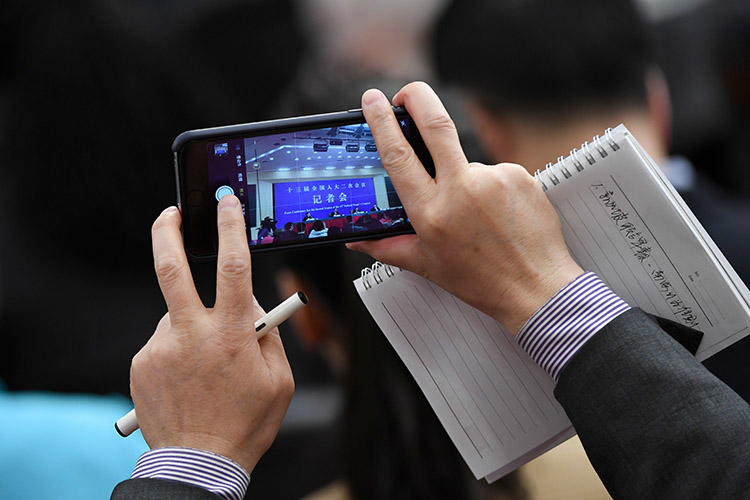Conditions for foreign correspondents in China deteriorated in 2019, the Foreign Correspondents’ Club of China (FCCC) annual survey found. The report, published today, noted that for a second year none of the respondents gave a positive response when asked if conditions had improved.
The report, “Control, Halt, Delete: Reporting in China under Threat of Expulsion,” found that Chinese authorities increasingly use the threat of expulsion and visa denial to retaliate and warn against critical foreign coverage; summon journalists to meetings with officials; and harass Chinese citizens who work for the foreign press. The report is based on responses from 114 of the club’s members.
The FCCC documented nine cases of expulsion and non-renewal of visas since Xi Jinping took power in 2013 and warned against a potential rise in the practice. In 2019, more journalists received short-term visas valid for six months or less, and at the beginning of 2020 two correspondents received credentials of only one month, the survey found.
The report documented how officials summoned journalists to meetings for reporting on sensitive issues and explicitly told them that crossing “red lines” would result in “unwelcome consequences.” Authorities also warned people against speaking with foreign media, which has led sources to decline or cancel interviews.
Other issues noted in the report include government interference, harassment, and violence. More than half of the foreign correspondents who responded to the survey said that police or other officials had obstructed them at least once in 2019.
The respondents said that Chinese colleagues endured threats to family members, home visits, calls from police, and coercion to report on the work of correspondents.
The report found that Chinese authorities also stepped up technological capacity against the use of virtual private networks (VPNs), which allow journalists to circumvent the country’s firewall to access censored content and websites.
International journalists who traveled to Xinjiang, where China is accused of jailing large numbers of the Uighur population, said that local police and officials told them reporting in the region was restricted. The report noted that 65% of journalists who went to Xinjiang in 2019 were prevented from entering locations by what many said they believed to be staged traffic accidents or road blockages.
Some mainland-based journalists who traveled to Hong Kong to report on the months-long protests were stopped and searched at immigration or border security. One journalist said that security officers questioned her for hours and checked her phones and laptop for pictures.
Stories about Xi Jinping also elicited strong responses from Chinese authorities. At least three foreign media organizations were asked to take down articles about Xi or to stop referring to Xi in their reporting, the report found. It also documented instances of Chinese diplomats abroad seeking to influence local media.
The full report can be seen here.
